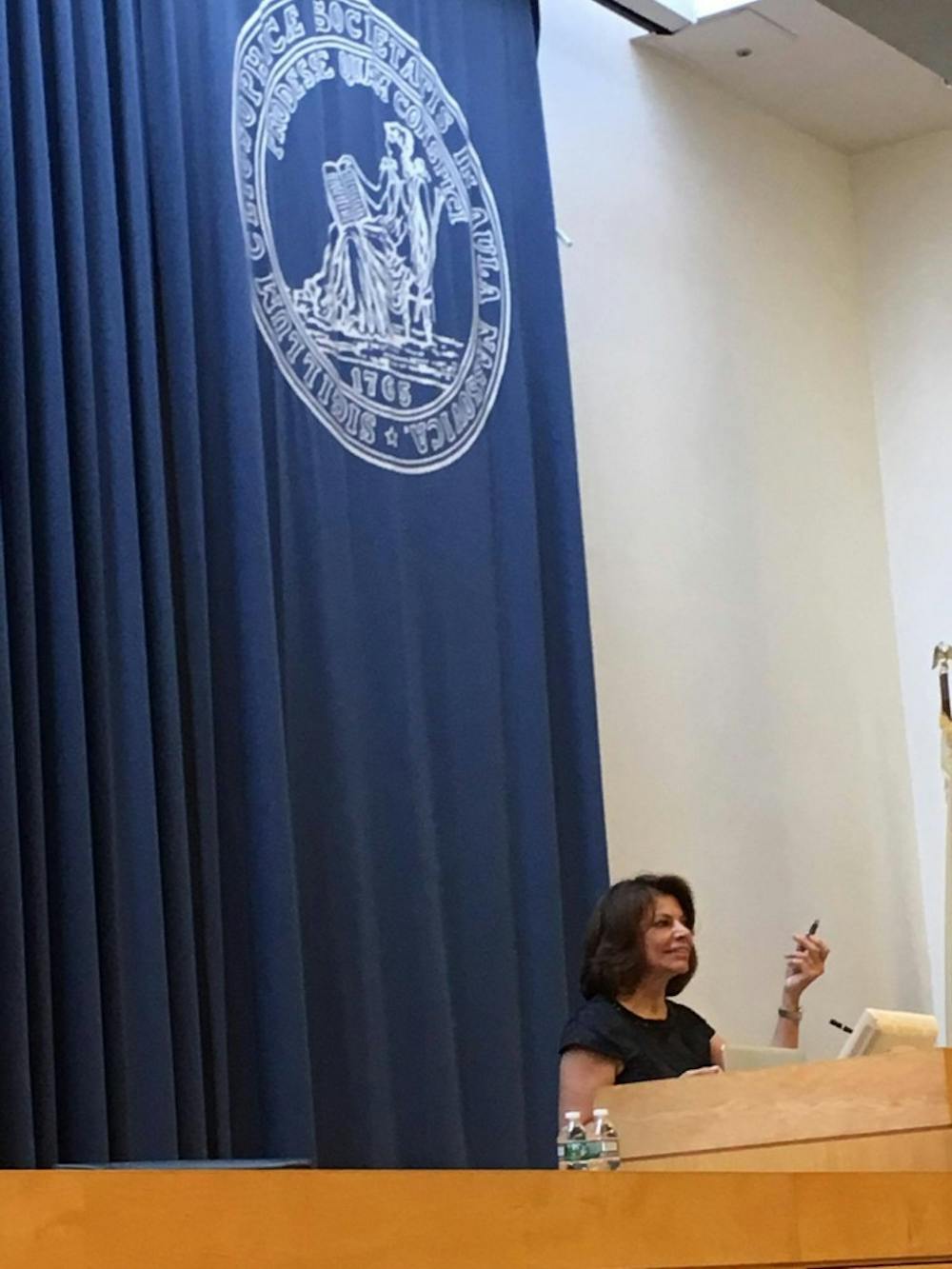Although Latin American countries have made strides in combating inequality and improving their economies, the region still faces a dynamic set of challenges, former Costa Rican president Laura Chinchilla said in a lecture Thursday.
“For the first time ever, more people belong to the middle class than are considered poor; however, large portions of the population are vulnerable to falling back into poverty in the case of economic shocks,” said Chinchilla. “We must make significant gains in productivity over the next couple decades if we are to survive in an increasingly interconnected world.”
Chinchilla, the first woman president of Costa Rica, was in office from 2010-2014. Her major initiatives centered around reducing crime, improving public safety, and establishing public healthcare. Before ascending to the presidency, she served both as Costa Rica’s Vice President and Secretary of Justice.
The economies of many Latin American countries have improved; the region even weathered the 2008 recession fairly well, according to Chinchilla. Economic success translated into social achievement — poverty and unemployment declined, while the middle class grew, she said. Since 2013, however, the total Latin American GDP has been on the downturn again, and unemployment has increased.
Chinchilla said that the three main challenges facing Latin America today are economic competitiveness, social inequality, and democratic governance.
Latin American countries can improve their economies by investing in education and research and finding ways to lower energy costs, Chinchilla noted.
“A necessary discussion of tax reformation is a discussion of how we can increase the efficiency and transparency of our public administrations,” she said.
Chinchilla identified other regional issues that require new approaches in order to fix. She described corruption as “embarrassing for politics in our region” and a “long-term problem in Latin America.” She pointed to studies showing Latin Americans have lower satisfaction rates with democracy compared to countries in Africa, Europe, and Asia.

Violence, drug trafficking, and organized crime continue to afflict the region, causing 100,000 deaths in Latin America each year, she explained. Chinchilla argued that the best way to tackle crime is through prevention methods, pointing out that Costa Rica is one of the most secure Latin American countries — even though it doesn’t have an army.
“We need to decide and implement effective local, national, and regional responses to violence, drug trafficking, and all forms of organized crime,” she said. In addition to impressive advances in safety, Latin America has also bolstered the role of civil society groups in the political process.
“Despite many challenges, some Latin American countries have advanced considerably in the past couple of decades, encouraging the participation of civil society into their decision-making process and strengthening the rule of law,” Chinchilla explained, adding that the same countries have also drastically increased female participation in politics.
Following only Scandinavia, Latin America is the global region with the second-highest rate of female participation in national parliaments and legislatures. The high rate of women leadership is not due to cultural norms, Chinchilla explained, but instead to efforts to pass laws with quotas and to promote affirmative action policies.

“We needed to enforce the change, or we will still be waiting for the change,” she said. “In politics, we are able as a society to gain many things when we open the door to women leadership.” She added that integrating women into politics and any other field is critical because women contribute new perspectives and values. The complementary leadership of men and women “gives us the possibility to have more robust public policies and programs, and more successful responses for many sectors of the population,” she said.
Chinchilla ended her talk by noting that Latin American countries possess the capability to overcome the issues that face them.
“None of the things I have said are easy. But there are clear signs indicating the paths we need to take,” she said. “We hold the key to unraveling over 500 years of unfulfilled promises.”
The lecture, entitled “Latin America, A Pending Assignment: A Conversation with Laura Chinchilla,” took place on Sept. 21 at 5 p.m. in Whig Hall Senate Chamber. It was part of a series commemorating the 50th anniversary of Princeton Latin American Studies.








